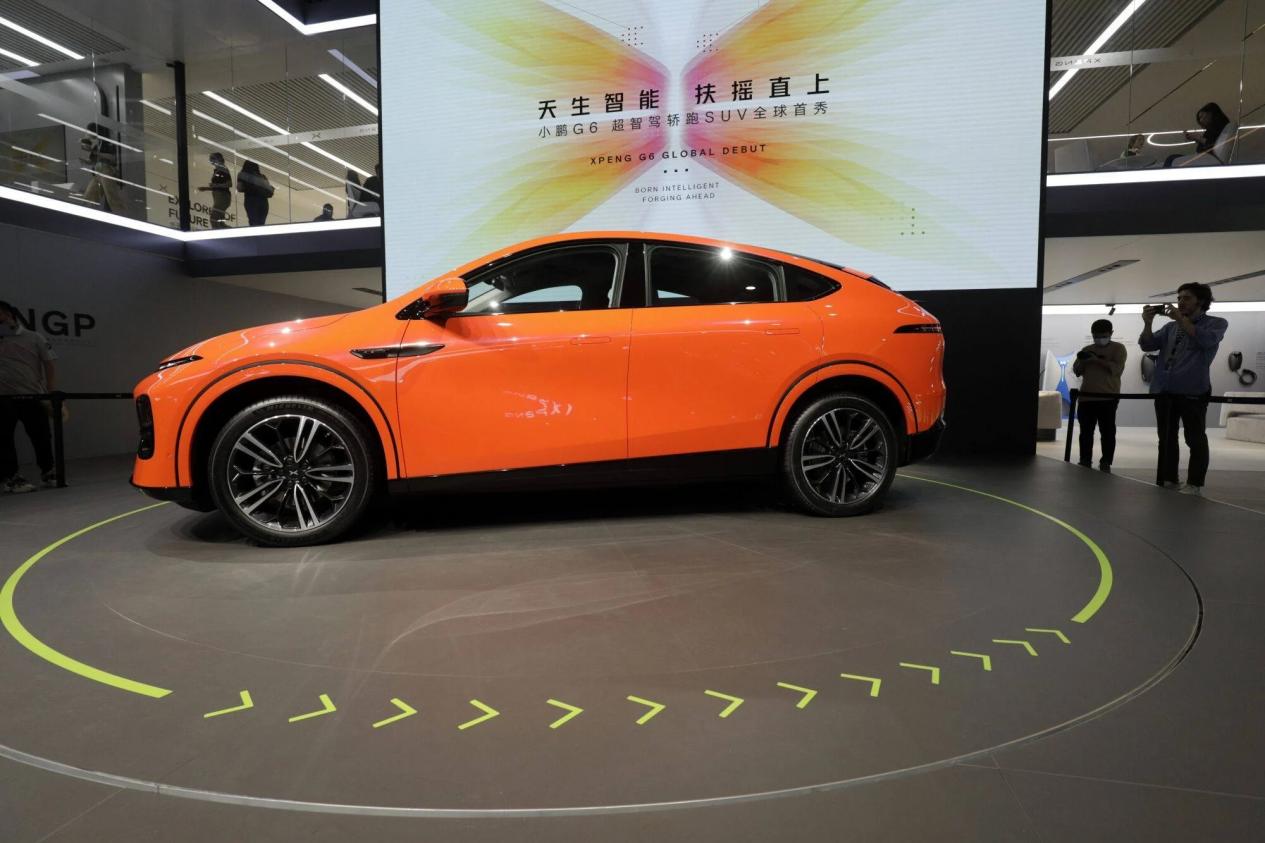Analysts forecast of doubling revenues comes on the back of a 37 per cent increase in total sales of pure electric and plug-in hybrid vehicles in the first half from a year ago
Consumers who had postponed car purchases in anticipation of further discounts began returning in mid-May, sensing an end to the bruising price war

Chinese consumers’ mania for electric vehicles has driven the stocks of leading carmakers in a two month rally that has seen some of them double in value, dwarfing the market benchmark’s 7.2 per cent gain.
Xpeng has led the rally with a 141 per cent surge in its Hong Kong-listed shares in the past two months. Nio has jumped 109 per cent and Li Auto has advanced 58 per cent during that period. The performance of the trio has outpaced the 33 per cent gain in Orient Overseas International, the best performer on the city’s stock benchmark in the period.
And this frenzy is unlikely to end soon as booming sales are forecast to continue for the rest of the year. UBS predicts that EV sales in the world’s second-largest economy will probably double from the January-to-June period to 5.7 million units in the remaining six months of the year.
The stocks’ rally underscores investor optimism that China’s EV makers will weather the fierce price war and sales growth will continue. UBS’s forecast of doubling revenues comes on the back of a 37 per cent increase in total sales of pure electric and plug-in hybrid vehicles in the first half from a year ago.

“With falling lithium prices and other material costs easing too, EV prices are now at par with those of oil-powered cars, and that has opened the door for the penetration to increase in the long run,” said Huang Ling, an analyst at Huachuang Securities. “Industry sentiment will remain resilient and growth rate will stay at a middle to high level in 2023.”
The trio registered record sales in July, an off-season month because of the hot weather. Nio’s EV deliveries jumped 104 per cent from a year ago to 20,462 units and Li Auto’s surged 228 per cent to over 30,000. While Xpeng’s deliveries were largely flat on a year-on-year basis, it still recorded a month-on-month increase of 28 per cent.
Consumers who had postponed car purchases in anticipation of further discounts began returning in mid-May, sensing an end to the bruising price war and enticed by new car models with features like cutting-edge autonomous driving systems and digital cockpits.
For instance, Xpeng’s latest G9 sport-utility vehicle is now capable of self-driving in China’s four first-tier cities – Beijing, Shanghai, Guangzhou and Shenzhen. Li Auto kicked off the test drive of its city navigate-on-autopilot system in Beijing last month, which reportedly can handle emergencies like route diversion and traffic jams.
“With a fast developing China EV market and the recognition from global OEMs (original equipment manufacturers), we see a promising outlook for the entire China EV market, including the entire supply chain,” analysts led by Frank Fan at Nomura Holdings wrote in a note in July, referring to the acknowledgement of the market potential from global majors. “Considering the fast intellectualization trend of vehicles in the China market, we believe the tier-1 players are actively moving ahead along with the market trend.”
Stretched valuations used to be a major obstacle holding back EV stocks. After a year-long pullback, the stocks have made their way back on traders’ radar screens. The average multiple for EV stocks has now dropped to a one-year low of 25 times earnings, according to Xiangcai Securities, citing Wind Information data. The trio of EV makers lost between 37 per cent and 80 per cent of market value last year.
EV stocks are still a good proxy for China’s consumption revival. After the expiry of the monetary subsidy benefit, Beijing has extended purchase tax incentives for clean-energy cars this year. Many local governments have offered various subsidies to stimulate purchases, such as trade-in subsidies, cash incentives, and free number plates.
For US research firm Morningstar, a slew of supportive measures introduced by the government to bolster the housing market will sustain the resilience of EV sales by boosting consumer confidence and improving the wealth effect.
China’s new central bank governor Pan Gongsheng met with representatives from developers Longfor Group Holdings and CIFI Holdings last week to pledge more funding support for the private sector. Zhengzhou, the capital city of central Henan province, has become the first second-tier city to lift home resale restrictions in a package of easing measures, fanning speculation that other big cities will follow.
“We expect the recovery to continue into the second quarter on the back of the easing of some property cooling measures in February 2023 to support first-time homebuyers,” said Vincent Sun, an analyst at Morningstar. “This bodes well for a boost to consumer confidence and to our EV sales outlook.”
Post time: Aug-08-2023




